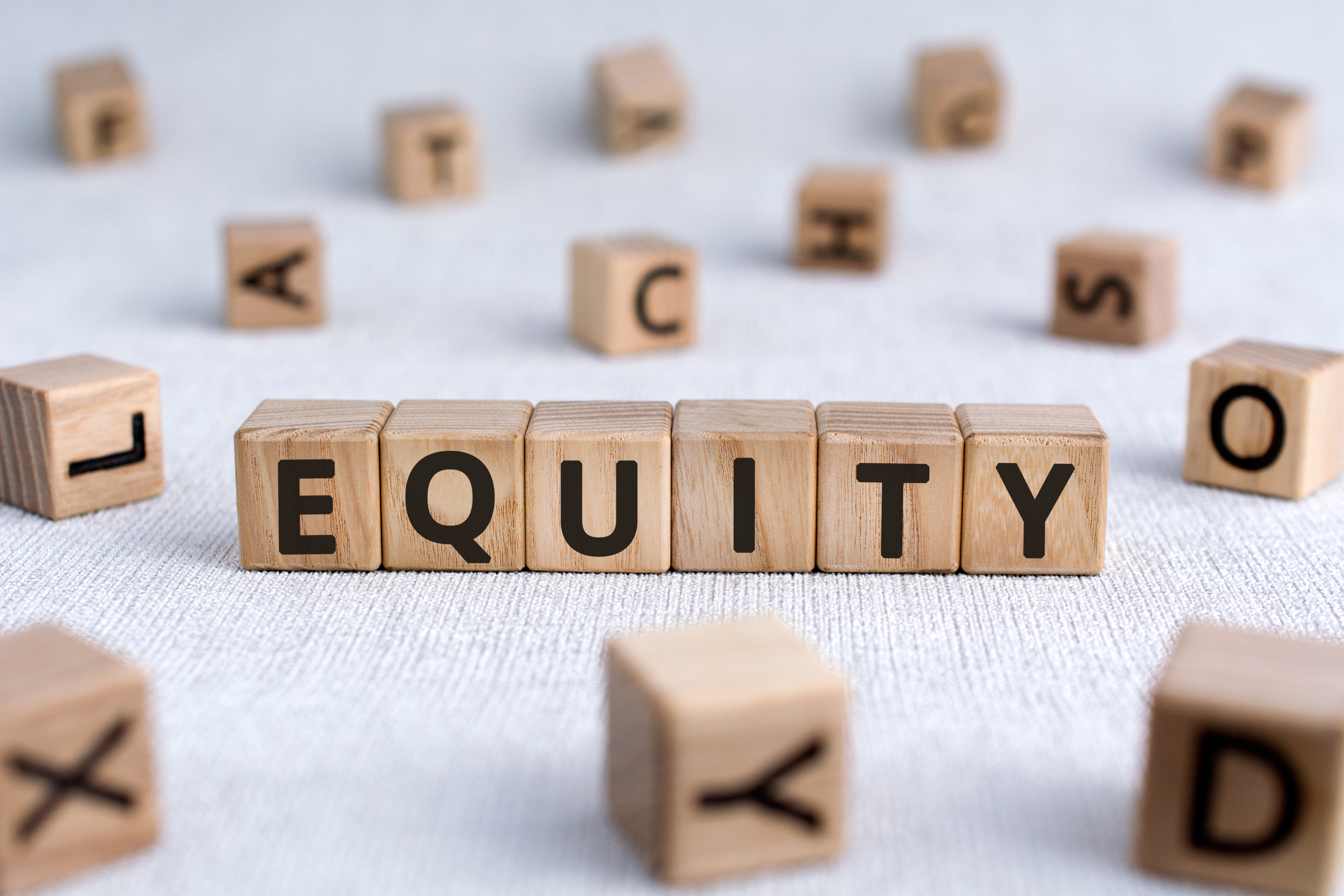The Startups Team

Welcome to Phase Three of a four-part Splitting Equity Series. If you missed it, start your journey here: Introduction - Early Startup Equity — Getting it Right before continuing on if you haven’t already, and go in order from there.
Phase One - Startup Equity - Avoiding Early Mistakes
Phase Two - How Startup Equity Works
Phase Three - Part 1 - How to Split Equity ( ←YOU ARE HERE 😀)
Part 2 - Splitting Equity Today
Part 3 - Splitting Equity in the Future
Phase Four - Equity Management
Let's continue!
By default, most startup founders just split their equity once and live with it. They may decide on an equal split or they may devise some reasons why the split favors one partner more than another. But when all is said and done, they make a split, and they move on.
This method is quick, simple …and usually a horrible idea!

Alright Startup Founders: Stop, Collaborate and Listen.
Before we go on to how equity splits work, once again we need to hammer home a point in excruciating detail so that the rest of this process has true context.
Startup Founders, please repeat after me:
“We won’t just split the equity one time and forget about it.”
“We won’t just split the equity one time and forget about it.”
“Seriously – we’re not gonna do that! That's not how to split equity”
A quick and “fair” equity split between co-founders avoids some of the most important considerations in how to split equity at all. It entirely overlooks how to properly value the contributions of the co-founders and founding team now or over the long term. If we just make an equity split and forget about it, we make the single biggest bet we possibly can on the equity pie with no recourse or consideration.
Right now, we have the absolute least amount of information as to how each member of the founding team (including the co-founders) will contribute over the long term. Yet we’re about to make a finite (one-time) decision with little to no data. All we know is we are both working on this. For now. That’s it. We have no way of knowing if one co-founder decides to bail in year three. It's day 3. But, good news, we have a ton of options to account for these changes, like a vesting schedule, a dynamic equity split, a one-year cliff, and more. So, let’s agree to explore those first before we make a giant, blind, one-time bet that impacts startup co-founders permanently.

The Old "Even Equity Split" Between Co-Founders
Instead of explaining how to do a one-time split of equity equally, let’s discuss how to avoid doing a one-time equity split or at the very least provide a bit more context as to how to split founder equity more fairly.
Let’s start with a little scenario that we can use to compare how startup equity gets split:
Imagine you and I went to dinner. I had two appetizers, a crab cake stuffed inside a filet mignon wrapped inside of a lobster set atop a bed of oysters dripping with truffles. I paired my ungodly monstrosity with a $400 bottle of wine. You had a Caesar salad and water.
When the check comes, I suggest we split it 50/50.
My logic is that there are two of us here, we both went to the same restaurant, we both enjoyed dinner together, and it only makes sense that we split the check evenly.
Are you going to say “yes” to that? If so, let’s grab dinner sometime soon! If not, let’s talk about why splitting something far more valuable than dinner 50/50 without first considering our respective contributions is a serious issue.
An Equal equity split is probably not a fair equity split.
To do this, let’s say we’re the only two partners in the business. We agree on a 50/50 equity split as co-founders because we think that sounds fair. The logic goes something like this:
There are two of us.
Each of us will work on this full-time, so we’re both adding 50% of the value.
If one of us gets more than 50% then it will automatically feel “unfair” to the other, even if it’s 51% vs. 49%.
To split equity fairly we go 50/50 which helps alleviate (avoid) the conversation of whether one co-founder deserves more equity.
We’re just going to assume that our contributions will be 50/50 from the very beginning and for the rest of the time.
If that sounds familiar, it’s the basis for almost every even split. It’s a combination of not knowing how to properly value contributions of all parties involved with a general awkward feeling of not being able to communicate any other method to split equity among the co-founders. “Equal splits” wins simply by being the path of least resistance for both you and your co-founder, which is ironic considering it’s setting off the most difficult path possible for everyone on the founding team.
As it happens, an even split is perfectly OK if it turns out that over the long run we both contribute equally to the business. But really, how likely is it that we’ll do that? Not very likely. Yet we’ll spend the rest of our business lives wondering why we didn’t take this issue much more seriously. An equal share is rarely fair.

The 3 Big Questions
Splitting equity – fairly or otherwise – should come down to just 3 critical questions:
What’s our contribution worth now?
What will our contribution be worth over some period of time?
How do we make adjustments if necessary?
Before we just “set it and forget it” with our equity splits, we simply MUST ask these 3 questions because they are the only way we can ensure distributing equity in the startup remains fair. Notice we’re saying — “remains fair.” That’s because the split we decide upon today may not reflect the long-term contribution to help the company succeed. Hell, it may not even properly reflect our initial contribution to the startup to get the original idea off the ground.
What’s important is that we set up a framework, even with our one-time equity split, to properly evaluate and manage the equity split over time. You can imagine how much more complicated this becomes as we move beyond the scenario of splitting equity once between co-founders. Once we have to consider how to split equity among the first key hires, board members, potential investors, and other employees, it becomes significantly more complicated. Factor in scenarios like what happens to equity ownership if a co-founder leaves the startup? How do equity splits impact decision-making in the startup?

So, how do we split equity?
To begin, let’s walk through each of the big questions so we have a good sense of how valuing our contribution can work in a fair and useful way. We'll do that in the next article in our series on splitting equity right here.
Find this article helpful?
This is just a small sample! Register to unlock our in-depth courses, hundreds of video courses, and a library of playbooks and articles to grow your startup fast. Let us Let us show you!
Submission confirms agreement to our Terms of Service and Privacy Policy.
Already a member? Login
No comments yet.
Start a Membership to join the discussion.
Already a member? Login